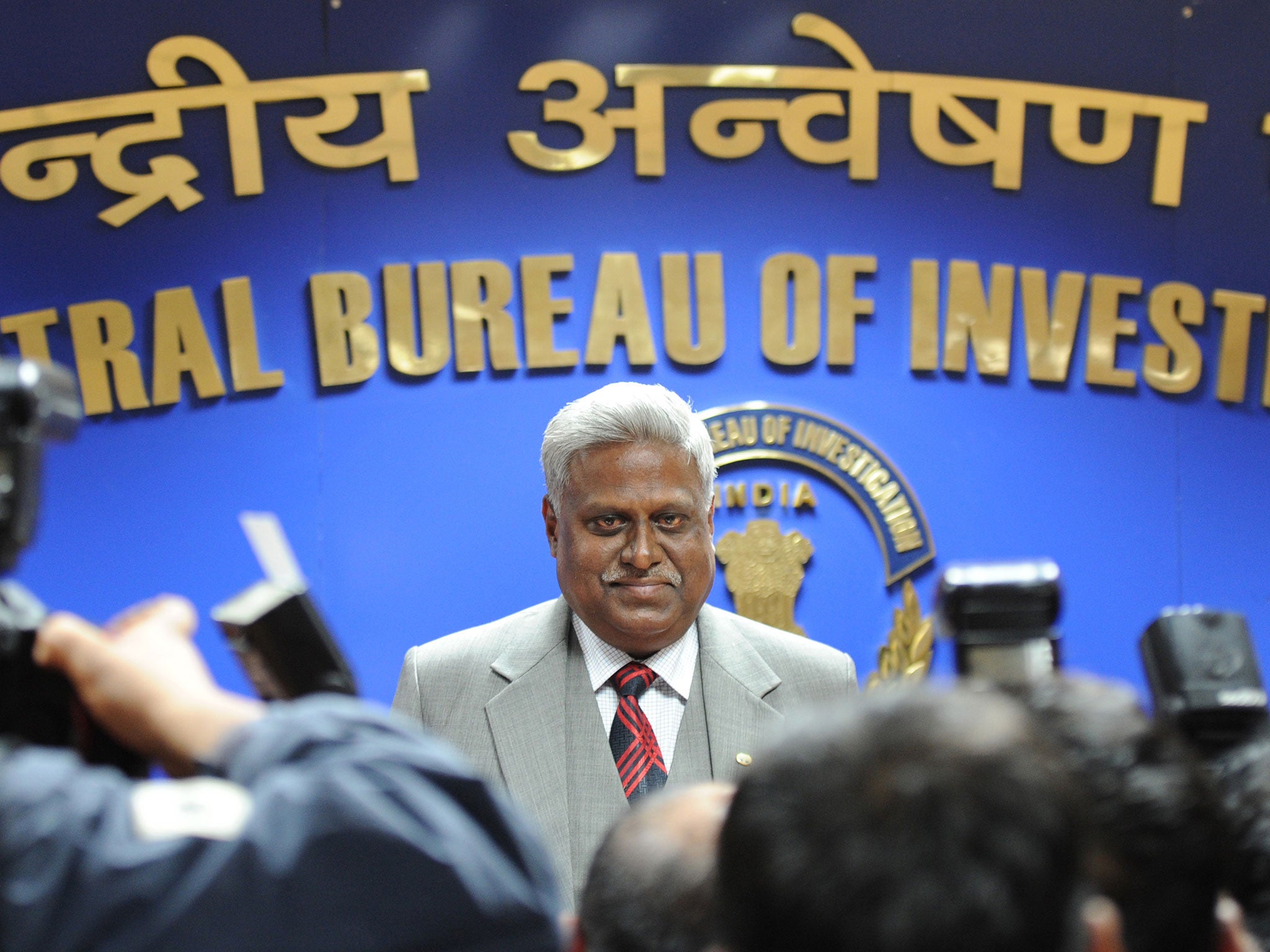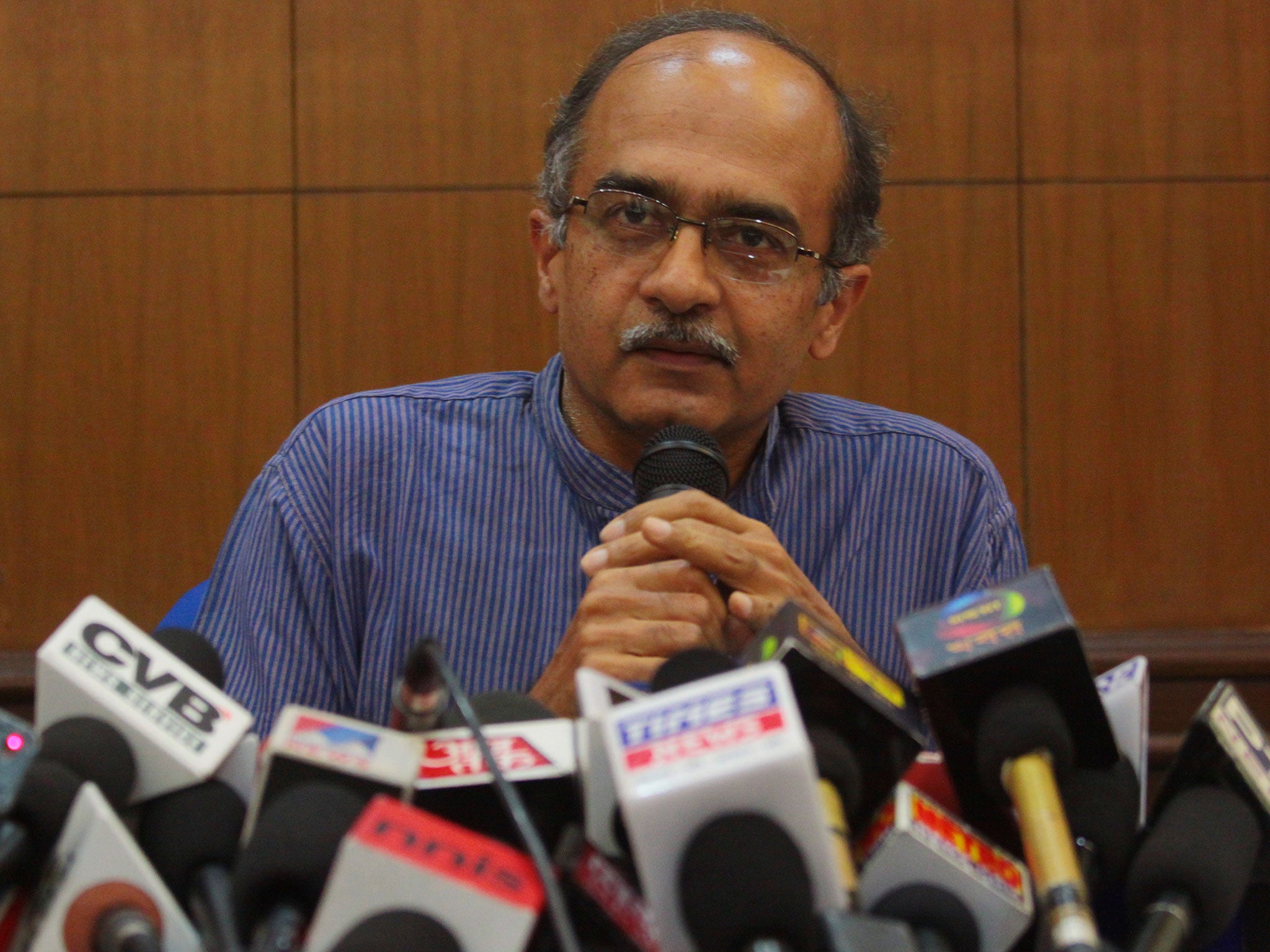Ranjit Sinha: India’s police enforcer in the dock over alleged corruption
As head of the Central Bureau of Investigation, Ranjit Sinha should be leading the new government’s anti-corruption drive. Instead, he is himself accused of shady dealings

Your support helps us to tell the story
From reproductive rights to climate change to Big Tech, The Independent is on the ground when the story is developing. Whether it's investigating the financials of Elon Musk's pro-Trump PAC or producing our latest documentary, 'The A Word', which shines a light on the American women fighting for reproductive rights, we know how important it is to parse out the facts from the messaging.
At such a critical moment in US history, we need reporters on the ground. Your donation allows us to keep sending journalists to speak to both sides of the story.
The Independent is trusted by Americans across the entire political spectrum. And unlike many other quality news outlets, we choose not to lock Americans out of our reporting and analysis with paywalls. We believe quality journalism should be available to everyone, paid for by those who can afford it.
Your support makes all the difference.One evening last week Ranjit Sinha, who heads India’s equivalent of the FBI, was in a meeting with lawyers in a basement office in south Delhi. While an entourage of armed police bodyguards waited for him outside, Mr Sinha, Director of the Central Bureau of Investigation, sat and discussed the accusations of corruption and malpractice that have been levelled at him, and which he denies.
Though no charges have been filed, Mr Sinha, 61, is said to have interfered with inquiries relating to senior politicians and major corporations. In particular, it is alleged that he influenced an investigation into the auction of 2G spectrum licences held by the previous government, as well as the allocation of coal assets to mining companies.
“The CBI Director has made serious attempts to derail the investigation and prosecution being carried out by the CBI,” says an affidavit filed by lawyer Prashant Bhushan before the Supreme Court.
Mr Bhushan, acting on behalf of two NGOs, Common Cause and the Centre for Public Interest Litigation, has asked the court to order that Mr Sinha recuse himself from both investigations and that a court-monitored inquiry should be carried out into the allegations against him.
The court has said it is watching the matter carefully and has asked Mr Sinha to explain his position on Monday. Last week his lawyer filed a written response and will appear for him before the court.
So far, the CBI Director has stridently denied the accusations, describing the claims as part of a conspiracy to undermine both him and the agency he heads. His lawyer, Vikas Singh, said he had advised his client to stop talking to the media and that the television channels following the story were simply hunting for ratings.
“The media has to sell itself, and good news does not sell,” he said. Among the “explosive” evidence cited by Mr Bhushan, a veteran lawyer who said he had been involved in more than 100 corruption cases, is a logbook he claimed was from the gatehouse of Mr Sinha’s official residence, a large compound with a 24-hour police guard in the exclusive Lutyens district of Delhi.
Mr Bhushan told the court that the logbook suggests Mr Sinha held meetings with a number of figures who were themselves under investigation, or who represented individuals or companies then facing inquiries.

The lawyer claimed the logbook showed Mr Sinha had met a number of times with Moin Qureshi, a meat exporter being investigated by the tax authorities, and two officials from the Reliance Group, a corporation with interests in everything from telecommunications to finance. The conglomerate, accused of benefiting from an auction of telecoms spectrum was being investigated by the CBI at the time.
A spokesman for Reliance, Daljeet Singh, said that the company had no comment to make. Mr Qureshi, who has yet to comment publicly on the matter, could not be contacted yesterday.
Mr Sinha originally dismissed the logbook as a fake and requested a legal ruling that would prevent the media revealing its contents. However, the court said it had no power to stop reporting of the book’s details. The CBI Director subsequently said he may have met some of the people named as part of his duties, but denied the visits were as frequent as had been claimed. He also said that he had known some of the people named in the book for more than 20 years and that some of the visits were social calls, and demanded an investigation into how Mr Bhushan obtained the document.
“This is a gross intrusion into my privacy. My personal space has been violated,” he told the Mail Today newspaper. “I have not taken any decision which will cause benefit to anybody, so why this witch-hunt? I am not disputing that I have met these people, I have met everyone, I have met some in my capacity as CBI Director, others because they are my friends, but you cannot attribute ulterior motives to these meetings.”
The accusations playing out in the Supreme Court come as India continues to struggle against corruption, widely perceived to have spread under the previous government, on whose watch the contentious allocation of mining licences and the spectrum auction took place. The minister who oversaw the 2G auction, Andimuthu Raja, is the subject of a separate investigation.
During his election campaign Narendra Modi, India’s Prime Minister, promoted himself as an enemy of corruption. Mr Modi, of the Bharatiya Janata Party, told supporters that, as he had no children or direct family, there was no reason for him to be corrupt. By contrast, he portrayed the previous Congress Party-led government as having failed to tackle corruption, and tainted by it. Mr Modi won by a landslide.
Today the court is expected to hear Mr Sinha’s representative. His lawyer, Mr Singh, said: “This is a pure over reaction by the media.”
Join our commenting forum
Join thought-provoking conversations, follow other Independent readers and see their replies
Comments